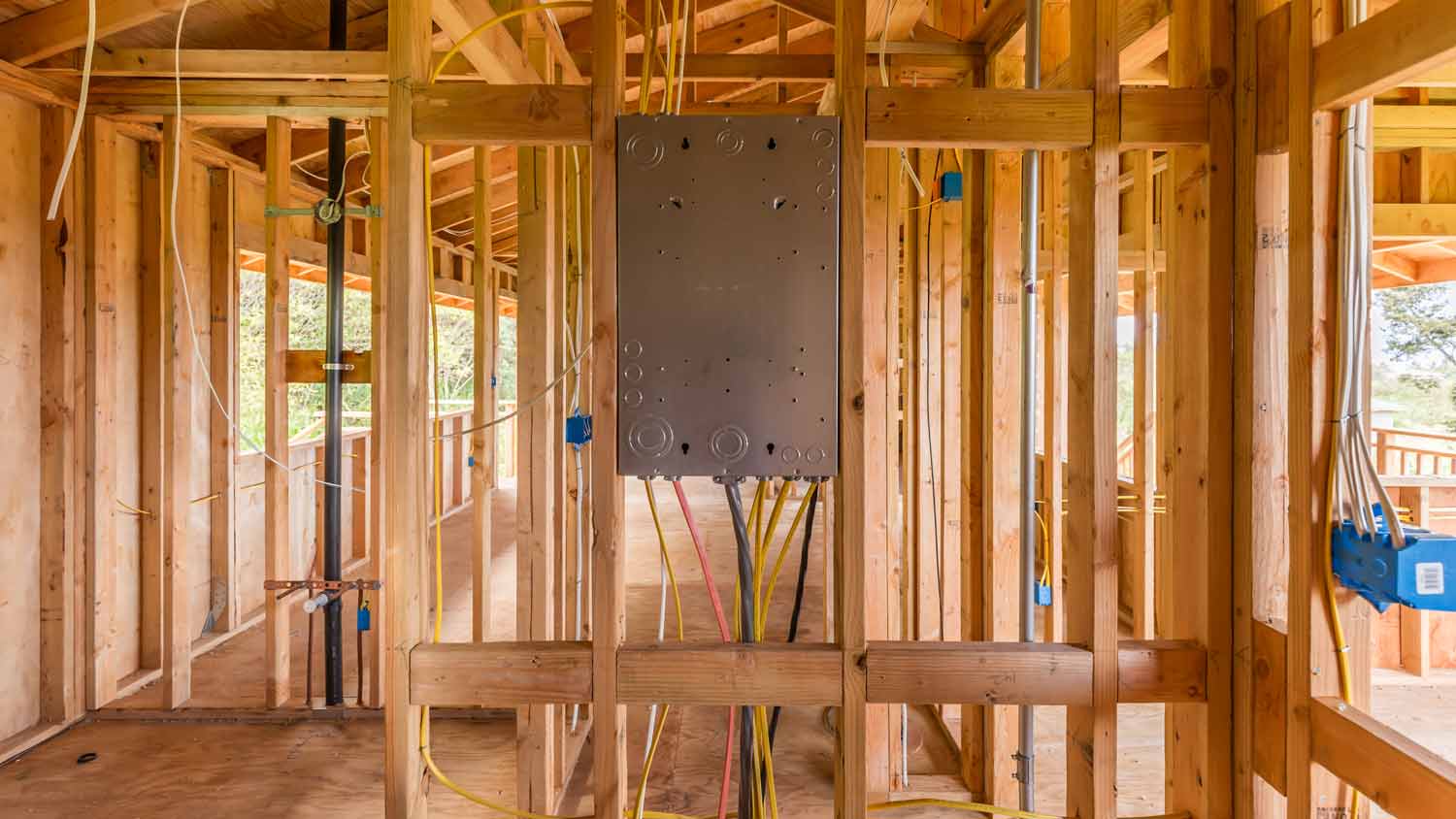How Much Does a Whole-House Surge Protector Cost? [2025 Data]
A whole-house surge protector costs $70 to $700, with a national average of $300. If you need electrical system upgrades to support the system, expect to pay more.


A whole-house surge protector costs between $70 and $700 or $300 on average. Installing a whole-house surge protector can help keep your home safer in the case of an electrical surge. How much your whole-house surge protector will cost depends on the type of surge protector and the amperage of your electrical panel. Take the guessing game out of your project by looking at this cost breakdown.
Whole-House Surge Protector Cost Breakdown

The cost of your whole-house surge protector depends on the type, level, labor, and any extra electrical work you need to complete the project. Here’s a closer look at these common cost factors.
If you live in an area prone to natural disasters or frequently experiences power outages, consider installing a partial or whole-house generator to ensure your home has a backup power supply.
Types of Whole-House Surge Protectors
There are several types of whole-house surge protectors. Which one you choose can impact the total cost of your installation. Overall, Type 1 whole-house surge protectors fall at the higher end of the price range, while Type 3 surge protectors are the lowest in price. Here’s a closer look at each type of surge protector.
Type 1
For the highest protection from power surges, Type 1 whole-house surge protectors are your best option. Type 1 surge protectors cost anywhere from $50 to $250 on average, not including the installation. These surge protectors are externally installed before power reaches your main breaker and need professional installation. For this reason, they may cost more than Type 2 surge protectors, which you can DIY if you know what you’re doing.
Type 2
Type 2 surge protectors offer the next best protection from electrical power surges. These surge protectors have a similar price tag as a Type 1 surge protector, coming in at $50 to $250. They’re installed internally, in the main breaker, where you can custom configure them to protect your most important electrical circuits or the entire circuit panel. These surge protectors’ performances depend on the brand and specifications.
Type 3
Type 3 surge protectors cost between $10 and $25 each on average and don’t require installation. Though not technically a whole-house surge protector, Type 3 surge protectors are what most people think of when they think of a surge protector. You plug this type of surge protector into individual outlets and connect your important electronics to the surge protector strip.
Whole-House Surge Protector Level
On top of the type of whole-house surge projector you choose, the National Electrical Manufacturers Association (NEMA) also has a four-level rating system for your whole-house surge protector that can impact the cost of your materials.
NEMA 1 whole-house surge protectors offer the least protection from surges and tend to cost less than NEMA 4 whole-house surge protectors, which come with added dust-proofing and waterproofing for longevity and outdoor installations.
Labor
The average cost to hire an electrician to install a whole-house surge protector is around $100 to $200. The installation should take around two hours to complete, and most electricians charge between $50 and $100 an hour for services. Some electricians may charge $150 for the first hour before dropping prices to a lower hourly rate, so be sure to ask ahead of time before hiring an electrician.
However, prices can go as high as double during off-hours and holidays. Plan ahead and get any necessary upgrades done in advance to avoid paying extra.
Materials
Materials will make up a relatively small percentage of your final cost, as the parts themselves don’t often carry a high price tag. The main thing you’re paying for is the electrician’s expertise, who will ensure that everything is safe and up to code.
Additional Electrical Work
Your costs can go double or even higher if your project requires extensive work, such as trenching. Unfortunately, your existing electrical line can’t always support an upgrade, which could significantly impact your cost. Contact your local utility company to determine whether your supply line will need an upgrade to support the additional power.
Upgrading Your Electrical Panel With a Whole-House Surge Protector Installation
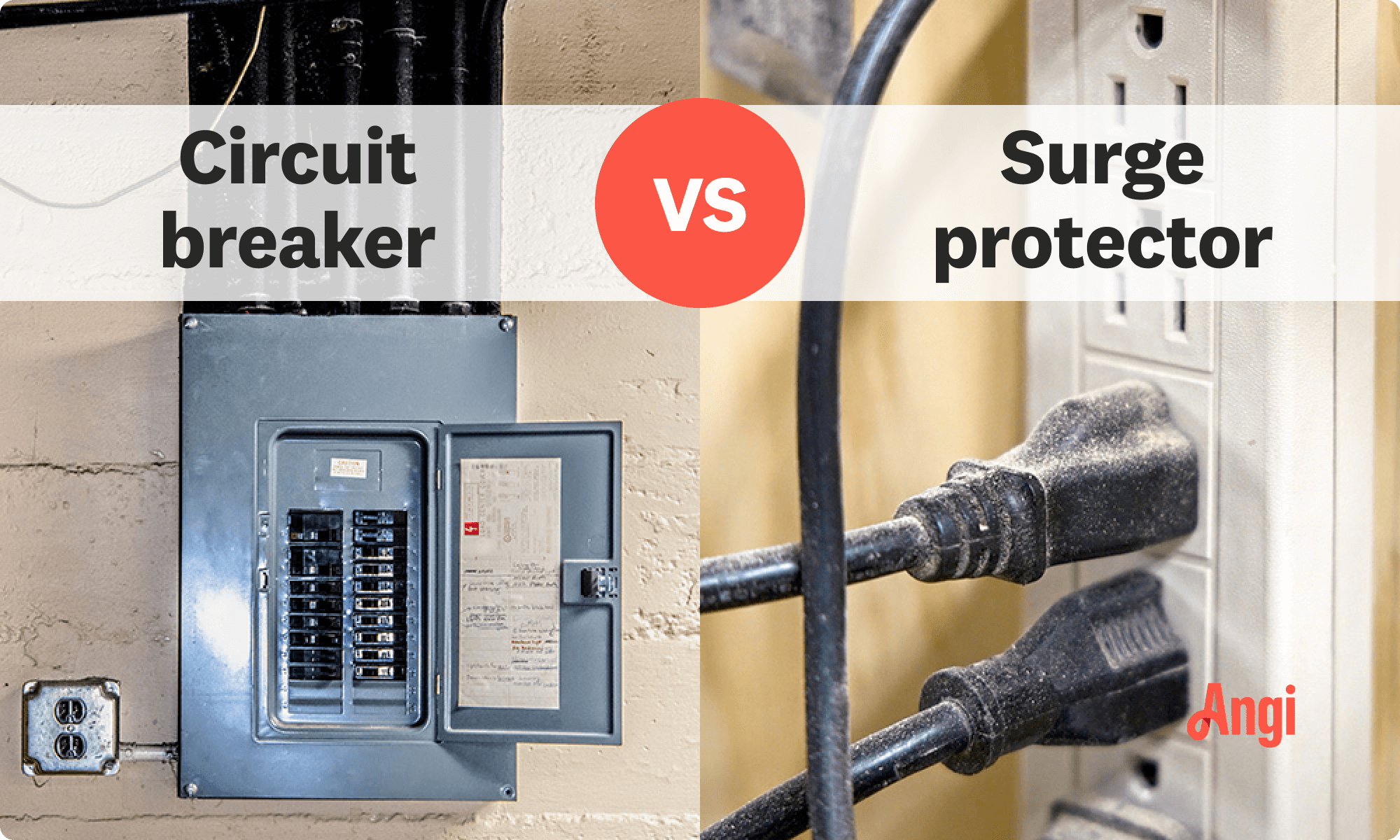
If you need to upgrade your electrical panel, anticipate spending between $575 to $4,700 total for your electrical upgrades. Below is a closer look at electrical panel costs to help you gauge your final price tag.
Cost to Upgrade Your Electrical Panel
Upgrading your electrical panel to support more power can cost anywhere from $500 to $4,000 or more. Here are the costs per amperage:
| Amperage | Cost |
|---|---|
| 100 amps | $500–$1,500 |
| 150 amps | $500–$1,750 |
| 200 amps | $750–$2,000 |
| 400 amps | $1,500–$4,000 |
Benefits of a Whole-House Surge Protector
Installing a whole-house surge protector in your home is a beneficial decision. Some advantages to installing a whole-house surge protector include:
Whole-house surge protectors offer better protection from electrocution.
The installation can help protect your electronics from getting fried.
Lightning doesn’t stand as much of a chance of harming you or your home.
Older homes that lack grounding especially benefit from the protection.
Your home is at a lower risk of an electrical fire.
You can skip the clunky and less effective Level 3 surge protectors that go in individual outlets.
You’ll have more peace of mind knowing your home has better protection from electrical surges.
Can I Install a Whole-House Surge Protector Myself?
Unless you have ample experience working with electricity, we recommend you hire a professional electrician near you to install your whole-house surge protector. Your pro knows all the ins and outs of safely and correctly installing surge protectors.
If you do have experience with electrical home improvements—and you feel confident in your ability to install the surge protector—you’ll want to choose a Level 2 whole-house surge protector, which is easier to install. Alternatively, some homeowners avoid installation fees for a Type 1 whole-system surge protector by installing the device like a Type 2 surge protector.
Other Home Electrical System Upgrade Costs
Electrical upgrade costs vary considerably based on your needs. Here are the average costs for the most popular upgrades.
| Upgrade | Cost |
|---|---|
| New electrical wiring | $600–$2,300 |
| Replacing electrical outlets | $900–$3,000 |
| Replacing light switches | $100–$200 |
New Electrical Wiring
The average cost of adding new electrical wiring ranges from $600 to $2,300, according to HomeAdvisor. However, these often aren’t simple projects. You may have worn outlets, outdated fixtures, damaged circuits, or other issues to deal with. A local electrician can evaluate the situation and recommend any needed repairs.
Replacing Electrical Outlets
Replacing all electrical outlets in your home costs between $900 and $3,000 for homes with 75 outlets. It may seem like a hefty investment, but electricians offer a generous price break for the quantity, so it’s worth considering.
Replacing a single outlet costs around $200, whether it’s a standard, GFCI, or high-voltage outlet to accommodate appliances that need extra amperage. It’s best to do this as part of a larger project to avoid minimum fees.
Replacing Light Switches
Whether it’s a dimmer for moodier lighting or a timer to turn your fish tank light on and off, replacing light switches can up the convenience and ambiance of your home. Here are the per-switch costs for these upgrades:
| Upgrade | Cost |
|---|---|
| Double/three-way/four-way switches (for operating multiple items) | $75–$175 |
| Dimmer switches | $80–$200 |
| Timer switches | $85–$200 |
| Smart light switches | $85–$150 |
How Angi Gets Its Cost Data
Home is the most important place on earth, which is why Angi has helped more than 150 million homeowners transform their houses into homes they adore. To help homeowners with their next project, Angi provides readers with the most accurate cost data and upholds strict editorial standards. We extensively research project costs to develop the pricing data you see, so you can make the best decisions for you and your home. We rely on reputable sources, including the U.S. Bureau of Labor Statistics, academic journals, market studies, and interviews with industry experts—all to ensure our prices reflect real-world projects.
Want to help us improve our cost data? Send us a recent project quote to costquotes@angi.com. Quotes and personal information will not be shared publicly.
Frequently Asked Questions
There are a few telltale signs that it’s time for a replacement. You should consider an upgrade if:
Your panel is over 25 years old
You’re adding a new electrical system
Your current system doesn’t offer the power you need
Your home is a jungle of power strips
Yes, you’ll have to replace your surge protector every three to five years.
Type 1 whole-house surge protectors are externally installed before power reaches your main breaker, while type 2 are installed internally in the main breaker where you can custom configure them to protect your most important electrical circuits or the entire circuit panel.
You may have access to tax breaks for whole-house surge protectors, depending on where you live. Some regions or states offer incentives to encourage homeowners to update to more energy-efficient options. Check with your local county or state office for specific tax breaks or through the ENERGY STAR site.

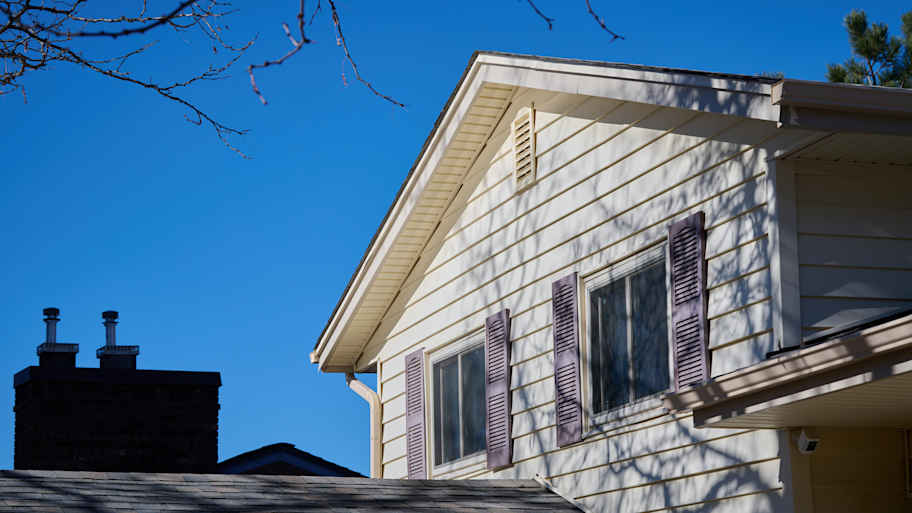
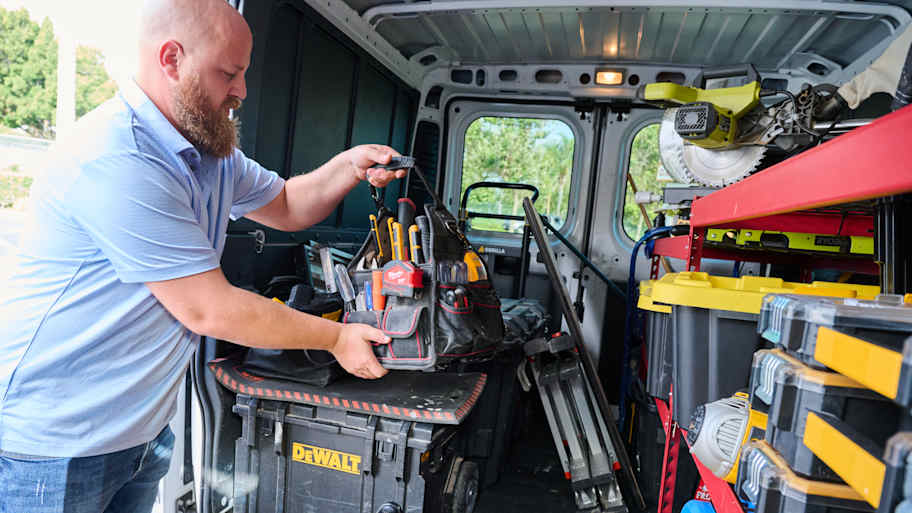
.jpg?impolicy=leadImage)
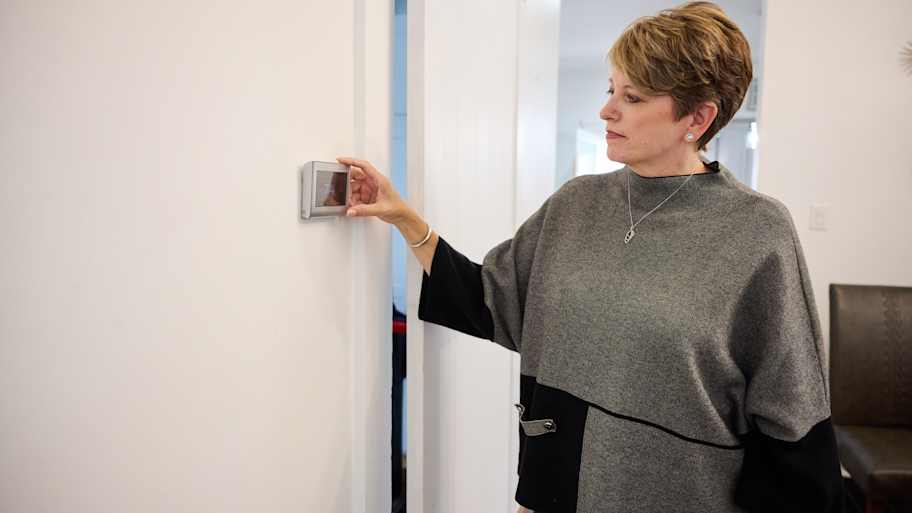
- Home Generator Repair
- Lamp Repair
- Electric Repair
- Generator Installation
- TV Antenna Services
- Emergency Electricians
- Commercial Electricians
- Attic Fan Installation
- Attic Fan Repair
- Exhaust Fan Installation
- Electric Inspectors
- Subcontractors
- Electrical Construction
- EV Charger Installer
- Chandelier Installation
- Doorbell Installation
- Bathroom Fan Installation
- Ring Installers
- Electrical Panel Upgrade




